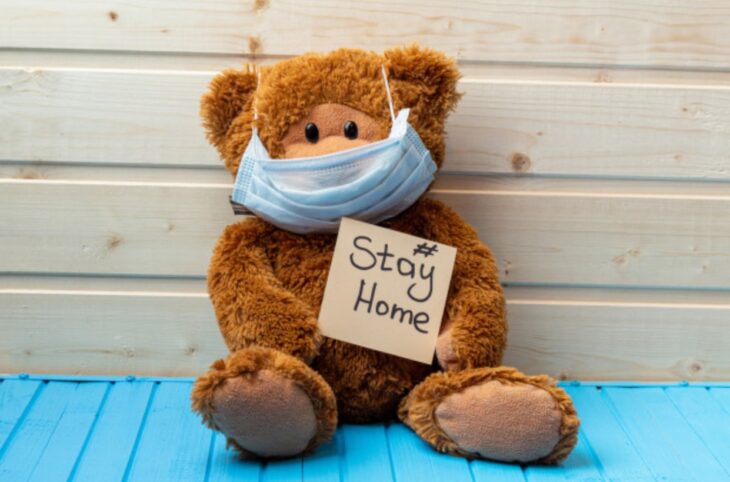The COVID-19 outbreak has created a “new normal” for daily life, including disinfecting groceries and other items (such as purchases from Amazon), wearing masks in public, and contending with working from home while teaching children at home. People today juggle a variety of tasks, and the danger of a pandemic can be stressful! The quarantine can lead to a feeling of helplessness and entrapment and, for many people, has taken a toll on mental health. According to a study from The Lancet, being cooped up in quarantine can have a serious impact on your mental well being when people are forced to stay at home for long periods of time, mental health issues such as depression, anxiety, lower immunity, and poor sleep habits. The quarantine can also lead to feelings of loneliness.
With that being said, what can be done to cope with the effects of quarantine? Very Well Mind (2024) states that to establish good mental health is to establish routines. One part of the routine that is often overlooked is practicing self-health and relaxing. The overload of information on COVID-19, along with added responsibilities, can wreak havoc on mental health, but taking time to unwind and relax is important. What are some ways to relax?
What Are Some Ways to Relax During Quarantine?

Source: Freepik
Because the quarantine is forcing people to stay in their homes for longer periods of time, physical health is often being neglected. Exercise is vital to keeping the mind healthy, including getting vitamin D from the sunshine! Exercise does not have to be for a long period of time or strenuous to be beneficial. A fifteen to twenty-minute stroll can be beneficial for helping declutter the mind. You can walk by yourself, with a friend, or walk your dog (the walking is healthy for your dog as well!). Very Well Mind talks about the importance of being active during quarantine by stating the just two weeks of inactivity can have metabolic (this includes how your body digests food) and immunity effects!
If you exercise, you might consider the next step in relaxing your body and mind, a nice hot bath! A bath helps the muscles relax and can give you time to just let your mind wander and be peaceful. Bath bombs are a great idea to give the extra benefit of aromatherapy for mental health. One of the best ways to relax during quarantine is with a Nectar Bath Treats bath bomb, which you can check if you click here. These handmade bath bombs have a variety of aromas to choose from; the ingredients are all-natural and made in Las Vegas. You can check out the website for their wonderful selection of stress-melting bath bombs. There is nothing more soothing than a warm bath with a wonderful scent so you can relax and close your eyes for a moment of rest.
A sense of being connected is one of the best ways to beat stress during COVID-19. This might mean less face-to-face meetings, but you can be creative and still have your get together, only virtually! For example, if you usually go with friends to get a coffee, you can all use Zoom or another app to still get your coffee individually, but meet up to chit-chat online. There are many ways to stay connected, including hosting virtual game nights, movie nights, play dates, and more! There are also professional resources for mental health, including your health care provider or a mental health specialist. You can still do small (five people or less) gatherings if you are sure no one is infected. Sometimes all it takes is one or two-family of friends laughing and sharing a meal to feel less alone.

Source: The SMU Journal
Eating healthy is also a vital part of keeping yourself both physically and mentally healthy. It’s easy to get in the habit of constantly snacking and watching TV while stuck at home, but resist the temptation to do so! There’s nothing wrong with having a snack every once and a while, but consider healthier snacks over junk food. An apple and peanut butter is a much better option than a bag of chips! Remember to plan your meals, so you have a balanced breakfast, lunch, and dinner. It helps to keep your routine as close as possible to that when not in quarantine. If you usually have a light breakfast and lunch, do your best to keep this the same. If you have children, try to include them in meal decisions and even make dinner together as a family! This is a good way to de-stress, teach new skills, and even laugh a little. Nothing beats stress like a great laugh!
Praying or meditation are ideas to look into when considering helping your stress level. Those who put faith in a higher power tend to be healthier and remember that most things that happen during the pandemic are out of your hands. Praying or meditating on the things you can control, what you’re grateful for, and looking for areas of self-improvement can all help stress levels.
Laughter, It’s the Best Medicine

Source:Tahoe Daily Tribune
That saying might feel like a cliche, but during this time of uncertainty, laughing and having fun can often be overlooked. Make sure not to watch the news constantly and find something that makes you giggle like a comedy, doing something silly (splashing around in the pool or water balloon fights are a great option) or trying out a new skill are good ways to laugh. There’s no shame if you aren’t the greatest at a new skill, look at it as having some growing pains! The more you laugh, the more of the feel-good hormones of serotonin and dopamine your brain will produce. Laughter is important in beating stress, and laughter can help boost your immunity, improve your sleep cycle, and help you feel connected to others. There’s nothing wrong with acting silly every once in a while.
As tempting as it can be to think the pandemic will never end and to count the days of quarantine, avoid the temptation to do so. There will come a time when the numbers will even out, and an effective vaccine will come to fruition. It can be frustrating to feel like the normal you knew before the pandemic will not return; however, it will sooner rather than later.
